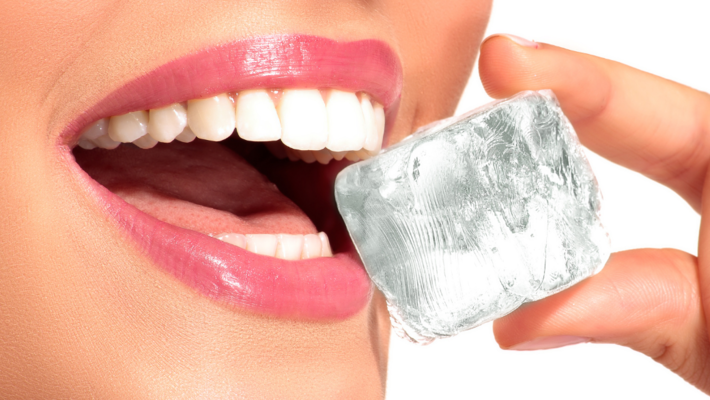"Chewing ice" is more dangerous than you think.
Health News
"Chewing ice" is more dangerous than you think.
Some people may enjoy the sensation of chewing on ice and find it satisfying. However, if someone has a strong craving for eating ice to the point of becoming addicted, it may be a sign of Pagophagia, a condition where individuals have a compulsion to chew on ice. They may also have a preference for eating non-food items like dirt, sand, paper, or hair. Chewing on ice excessively for prolonged periods can have negative health consequences.
- Dental problems : Frequent and prolonged chewing on ice, like ice cubes, can lead to dental problems such as tooth sensitivity, fractures, cracks, or chips.
- Diarrhea : There is a risk of experiencing diarrhea due to consuming ice that may be contaminated with disease-causing pathogens during transportation or packaging.
- Nutritional deficiencies : People who are addicted to chewing ice, to the point of avoiding other foods, may be at risk of nutritional deficiencies essential for the body because ice does not contain any nutrients.
- Signs of some complications : Excessive craving for chewing ice can sometimes indicate underlying conditions such as excessive stress, obsessive-compulsive disorder (OCD), iron deficiency anemia, or other blood disorders that can lead to the desire for ice consumption.
Chewing ice or consuming excessive amounts of ice does not directly cause iron deficiency anemia. However, if you have a strong craving for chewing ice that significantly affects your daily life, it is recommended to undergo a thorough medical examination with a healthcare professional. It is important not to self-supplement with iron without consulting a doctor, as it may have implications for other aspects of your health.
Source : Healthmatch
Follow Our Social Network


